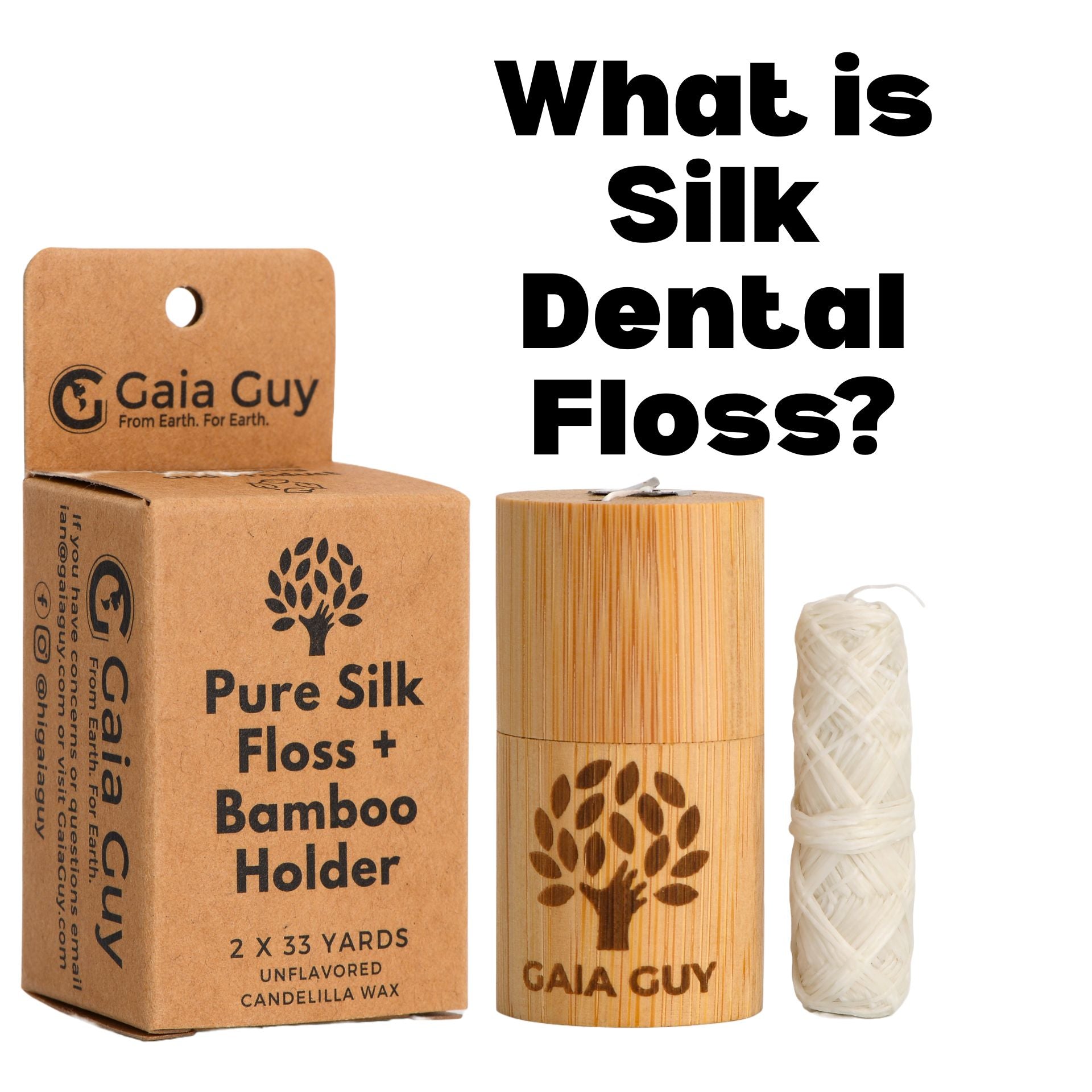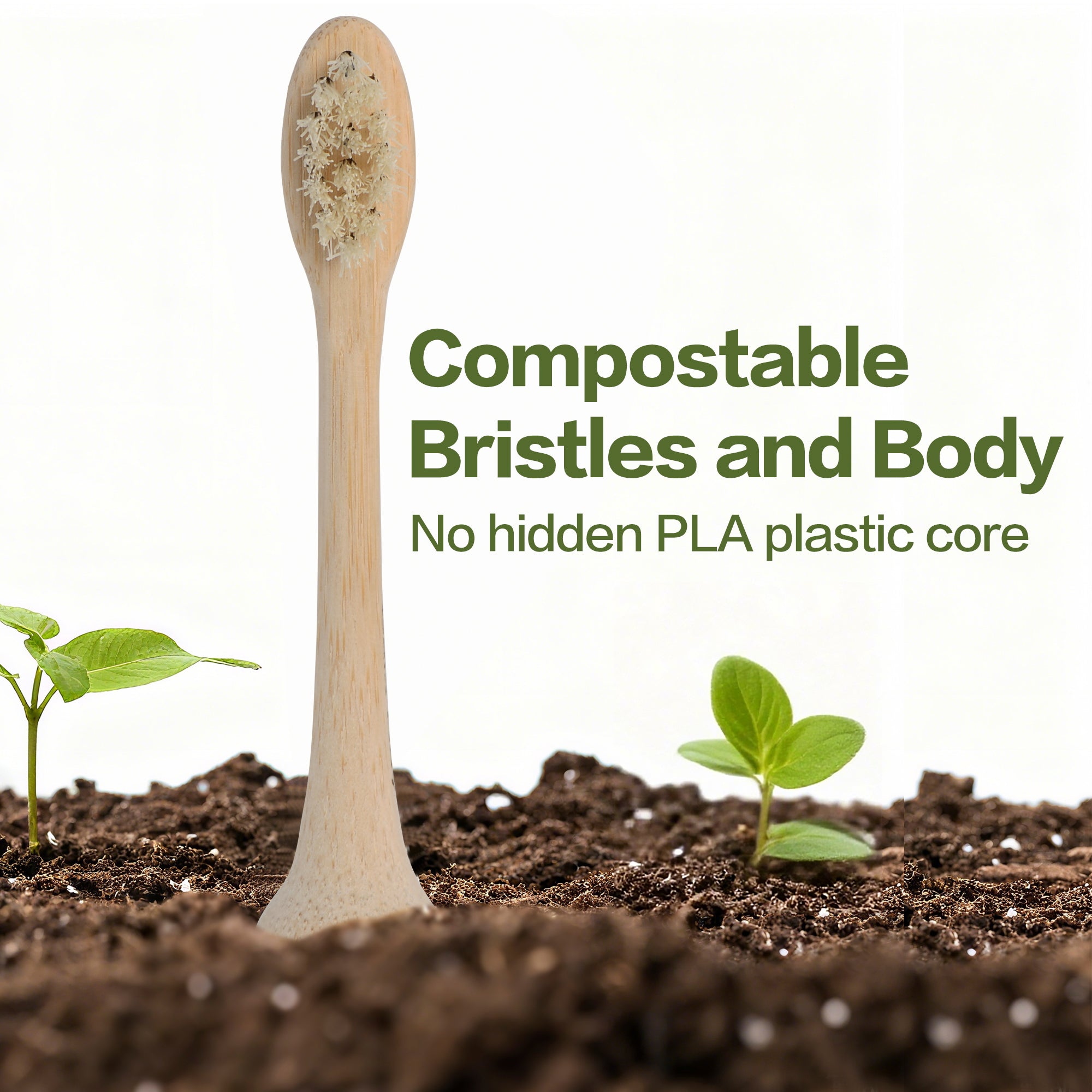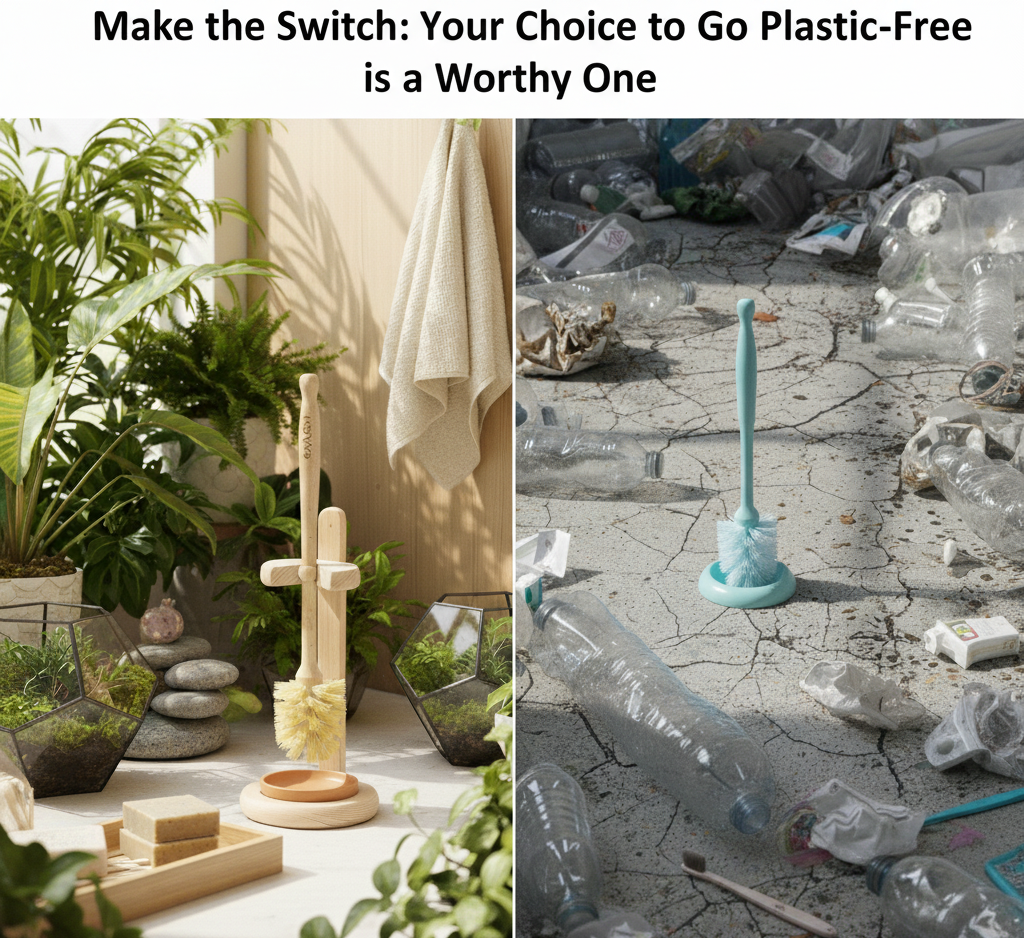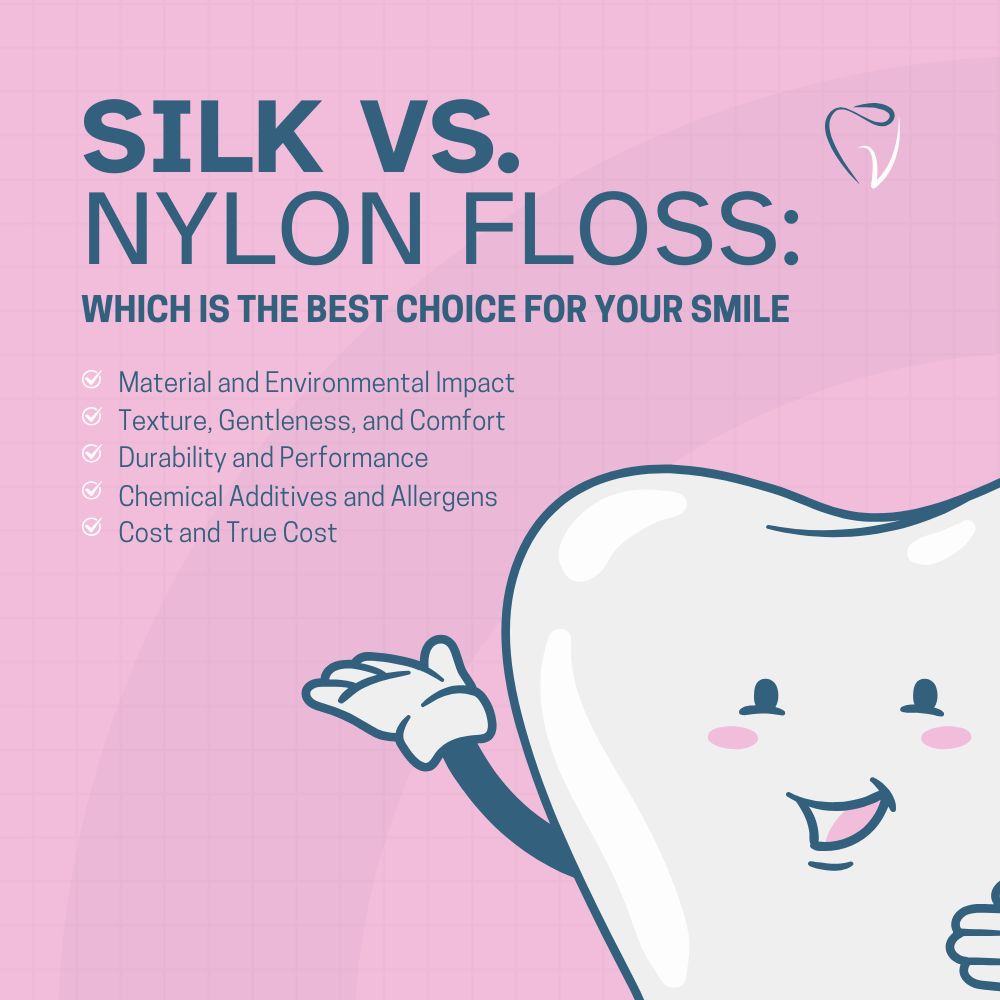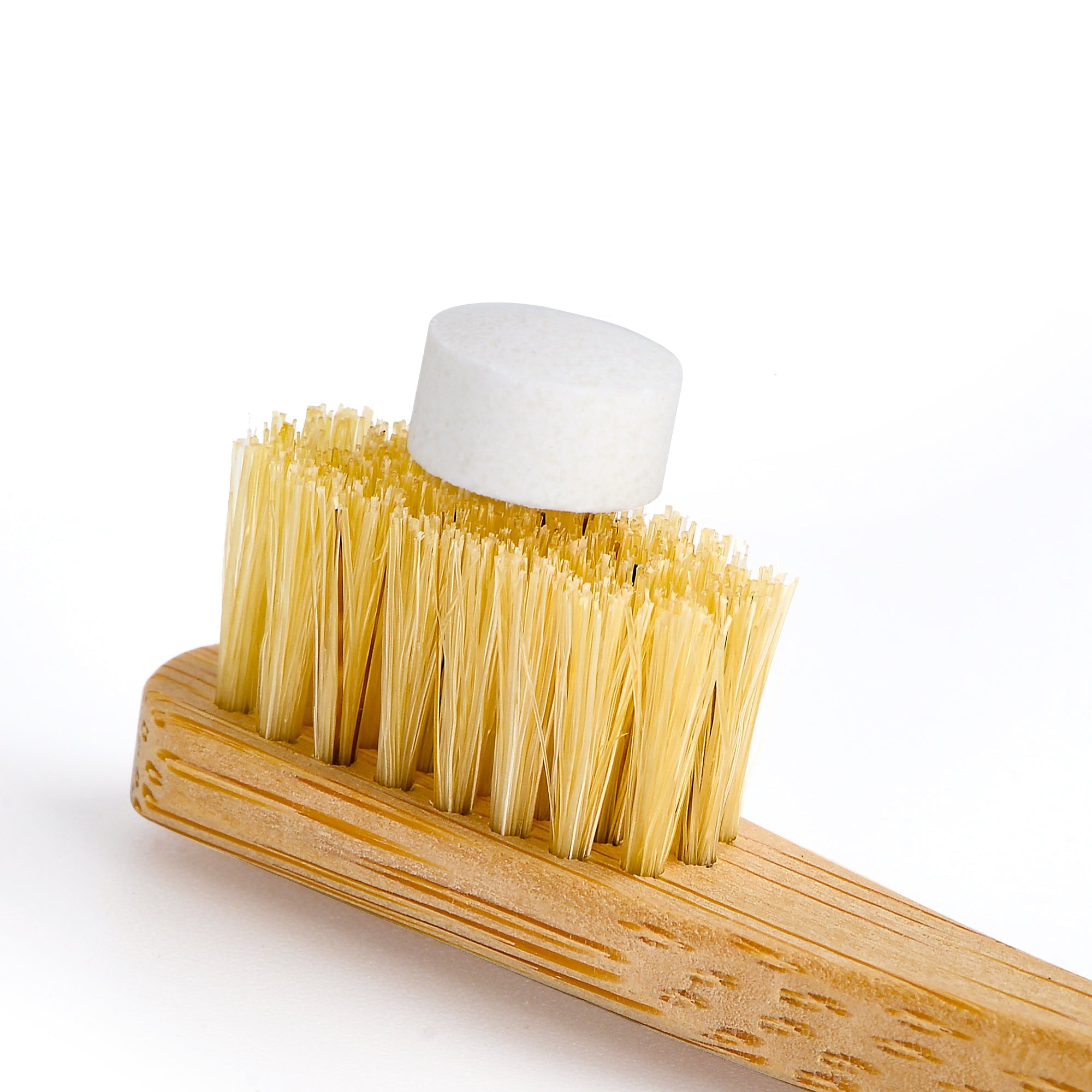Beyond the Brush: The Essential Thread of Silk Dental Floss
When it comes to oral hygiene, the spotlight often falls on toothbrushes and toothpaste. But what about that vital step in between – flossing? The choice of dental floss might seem minor, yet it holds significant implications for both your health and the planet. Today, we're diving deep into the world of silk dental floss, exploring its benefits, weighing its pros and cons, and critically examining the claims surrounding "peace silk."
What Exactly is Silk Dental Floss?
Forget the plastic fantastic; silk dental floss is a natural, biodegradable alternative to conventional nylon dental floss. Typically crafted from the strong and smooth fibers of mulberry silk, it offers an eco-conscious choice for maintaining a healthy smile. Unlike traditional floss, which is a petroleum derivative, silk floss often comes coated with natural waxes like candelilla wax or beeswax, and can be found in unflavored or naturally flavored varieties. It's a return to nature for your daily oral care ritual.

The Undeniable Benefits of Embracing Silk Dental Floss
Making the switch to silk dental floss brings a cascade of advantages for you and the environment:
- Biodegradable and Sustainable: This is perhaps the most compelling reason to choose silk floss. As a natural fiber, silk breaks down far more rapidly in the environment compared to synthetic nylon floss, which can linger for hundreds of years. Opting for silk significantly reduces plastic waste and its harmful impact on our planet.
- Gentle on Gums: Silk's inherent softness and smooth texture offer a kinder touch on sensitive gums. This can be a game-changer for individuals who experience irritation or bleeding with harsher nylon alternatives.
- Effective Cleaning Power: Don't let its gentle nature fool you – silk floss is remarkably strong and highly effective at dislodging plaque and food particles from tight spaces between teeth and along the gumline. This contributes directly to superior oral hygiene, helping to ward off cavities and gum disease.
- Natural Materials: For those seeking to minimize their exposure to synthetic materials and chemicals, silk floss is a breath of fresh air. It's often free from the artificial dyes, flavors, and petrochemicals commonly found in some conventional flosses.
- Eco-Conscious Packaging: Many brands that offer silk floss, such as Gaia Guy, extend their commitment to sustainability by providing their products in plastic-free, compostable, or recyclable packaging, further reducing the overall environmental footprint.
Silk Dental Floss: A Balanced Look at Pros and Cons

Like any product, silk dental floss has its strengths and considerations:
Pros:
- Environmentally Friendly: Its biodegradable and compostable nature is a major win for reducing plastic pollution.
- Gentle on Gums: The soft texture can lead to a more comfortable flossing experience, especially for sensitive users.
- Natural Composition: Made from a renewable resource, often with natural coatings and flavorings.
- Effective Cleaning: It performs admirably in maintaining oral hygiene.
- Sustainable Packaging: Often packaged with the environment in mind.
Cons:
- Cost: Generally, you can expect to pay a bit more for silk floss compared to its conventional nylon counterpart.
- Availability: While growing, it might not be as readily available in all mainstream stores as nylon floss.
- Durability (can vary): While strong, some users might find that certain types of silk floss can be less resistant to shredding than highly durable nylon floss, particularly in very tight dental contacts.
- Ethical Considerations (for some): For strict vegans, the traditional production of silk involves silkworms, which can be a point of concern. This leads us to the contentious topic of "peace silk."
The "Peace Silk" Paradox: Debunking the Myth of Non-Violence
The term "peace silk," or Ahimsa silk, is often presented as an ethical alternative, claiming to be produced without harming the silkworm. The conventional method of silk production involves boiling cocoons to preserve the long silk filament, killing the silkworm inside. Proponents of "peace silk" argue that by allowing the moth to emerge naturally, the silk can be harvested humanely.
However, a closer look at the entire process, as highlighted by experts like the team behind Wormspit.com in their candid article on Peace Silk, reveals a more complex reality.
Here's why:
- Domesticated Life, Not a Free Life: The silkworm moths used in "peace silk" production are highly domesticated, bred over thousands of years for silk production. Once they emerge, they often have a very short lifespan, sometimes just a few days, and are incapable of independent survival. They can't fly effectively, often lack developed mouthparts for feeding, and exist solely for mating and laying eggs. As the Wormspit.com perspective suggests, simply emerging from the cocoon doesn't equate to a "natural" or "free" life.
- The Unseen Casualties: The larger ethical picture extends beyond the adult moth's emergence. What happens to the vast quantities of eggs and larvae that are not selected for the next breeding cycle? If they are simply left to dry out and die, or starve, this raises significant ethical questions. The industrial scale of silk production, even "peace silk," means countless insects are born, live, and die under human management, often with limited prospects for a truly natural existence.
- Rationalizing a Desire: As the Wormspit.com article on Peace Silk points out, the desire to wear silk – a truly unique and luxurious fiber – can lead some vegans and vegetarians to rationalize the use of "peace silk." However, a thorough understanding of the entire process often reveals that the "non-violent" claim is, at best, an oversimplification.
For those truly committed to avoiding animal exploitation, the most consistent choice remains to avoid silk altogether. Plant-based alternatives such as organic cotton, linen, hemp, bamboo, or certain sustainable synthetics like Tencel (Lyocell) are more aligned with a strict non-harm principle.
Your Eco-Friendly Oral Care Journey with Gaia Guy
Ready to make a positive switch for your oral health and the planet? Gaia Guy offers a range of excellent silk dental floss products and resources to guide your journey into sustainable living.
Explore the comprehensive comparison between silk and nylon dental floss in their article, Silk vs. Nylon Dental Floss: Eco Choice. Dive deeper into the advantages and considerations of silk floss by reading Unveiling the Benefits and Considerations of Silk Dental Floss: Gaia Guy's Eco-Friendly Oral Care Revolution and You. You can also learn more about their commitment to sustainability in Eco-Friendly Products: Gaia Guy's Silk Floss & Compostable Boar Hair Toothbrushes Lead the Way and get insights into broader sustainable practices with What is Plastic-Free Living.
Ready to stock up? Check out Gaia Guy's silk dental floss products:
- For bulk and refills: Silk Dental Floss Refill, Unflavored Silk Dental Floss (4 Spools x 33yds)
- For a starter kit with a reusable holder: Natural Unflavored Silk Dental Floss with Floss Refill, Reusable Bamboo Holder, Biodegradable Plastic-Free Packaging (approx. 200ft)
- Bundles for complete oral care:
Making conscious choices about your oral care products is a small step that contributes to a much larger positive impact. By understanding the true implications of our choices, we can better align our actions with our values, fostering healthier habits for ourselves and a healthier planet.



